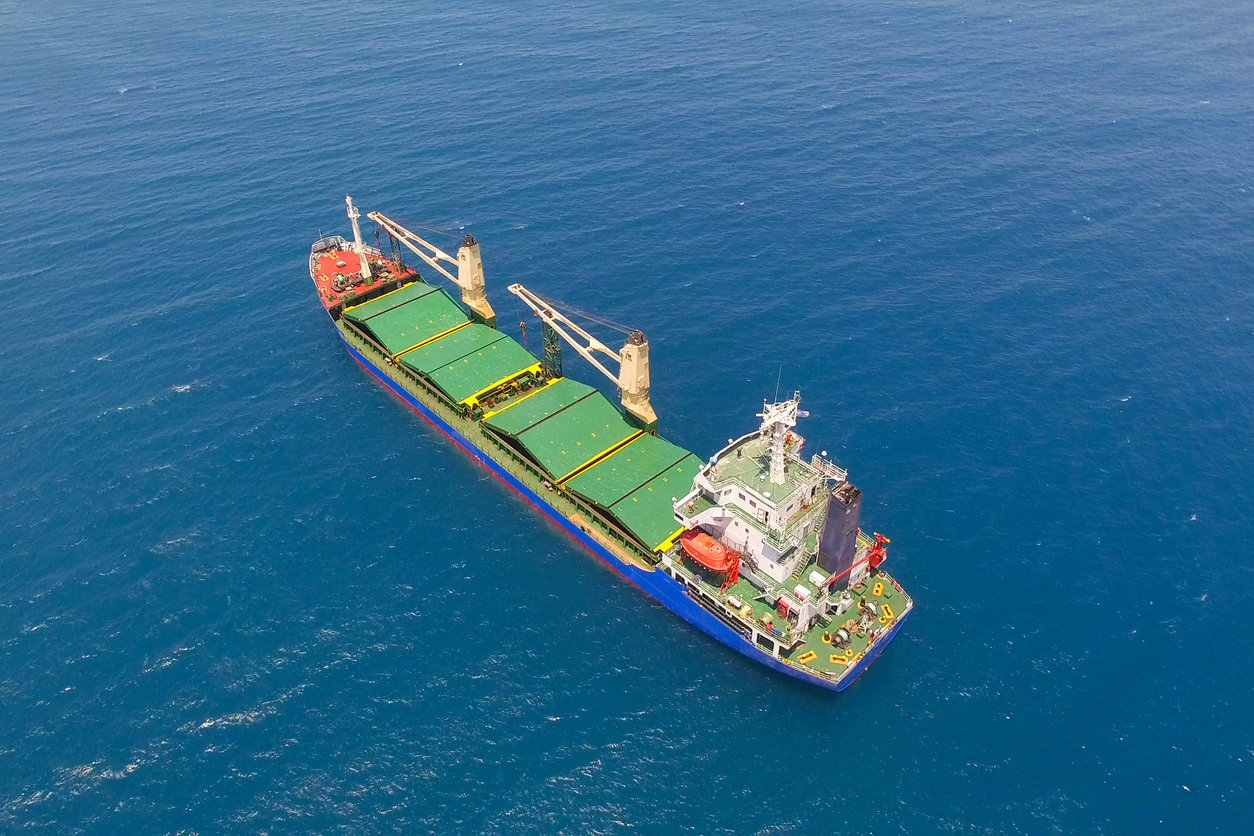Offshore Renewable Energy in Nigeria: A Path to Sustainable Development
Offshore renewable energy is emerging as a key solution to Nigeria’s energy challenges. With its vast coastline and significant natural resources, Nigeria has immense potential to harness energy from offshore wind, wave, and tidal sources. Transitioning to renewable energy not only addresses the country’s power deficit but also supports its commitment to sustainable development and climate action.
In this article, we explore the state of offshore renewable energy in Nigeria, its potential, challenges, and the way forward for this promising sector.
What is Offshore Renewable Energy?
Offshore renewable energy refers to energy generated from renewable sources located in oceans or seas. The primary technologies include:
- Offshore Wind Energy: Harnessing wind power through turbines installed in coastal or deep-water areas.
- Wave Energy: Capturing energy from surface waves.
- Tidal Energy: Generating power from tidal currents or changes in sea level.
These technologies are highly sustainable and produce minimal greenhouse gas emissions, making them attractive for energy development in Nigeria.
The Potential for Offshore Renewable Energy in Nigeria
1. Abundant Resources
Nigeria’s extensive coastline along the Gulf of Guinea offers significant opportunities for offshore wind and wave energy development. The steady winds and ocean currents in this region are conducive to renewable energy generation.
2. Addressing the Power Deficit
Despite being Africa’s largest economy, Nigeria faces a severe power shortage, with millions of households lacking access to reliable electricity. Offshore renewable energy can complement existing energy sources and reduce dependence on fossil fuels.
3. Climate Action Goals
Nigeria has committed to reducing carbon emissions under the Paris Agreement. Expanding offshore renewable energy aligns with the country’s goals to diversify its energy mix and transition to a low-carbon economy.
Current State of Offshore Renewable Energy in Nigeria
Limited Development
While Nigeria has made significant strides in renewable energy, such as solar and biomass, offshore renewable energy remains largely untapped. Challenges such as high initial investment costs, regulatory bottlenecks, and limited technical expertise have slowed progress.
Pilot Projects and Feasibility Studies
Several international organizations and local stakeholders are exploring the feasibility of offshore renewable energy in Nigeria. These studies aim to assess wind speeds, wave patterns, and the potential environmental impact of offshore installations.
Challenges Facing Offshore Renewable Energy in Nigeria
1. High Initial Costs
The construction and deployment of offshore renewable energy infrastructure require substantial investment, which can be a barrier in a developing economy.
2. Technical Expertise
Offshore energy technologies are complex and require specialized knowledge for installation, operation, and maintenance.
3. Regulatory Framework
Nigeria’s regulatory landscape for offshore renewable energy is still in its infancy. Clear policies and incentives are needed to attract investors and drive development.
4. Infrastructure Deficit
The lack of advanced ports, transportation systems, and grid infrastructure poses a logistical challenge for offshore energy projects.
Opportunities in Offshore Renewable Energy for Nigeria
1. Economic Diversification
Offshore renewable energy presents an opportunity to diversify Nigeria’s economy away from oil dependence. Developing this sector could create jobs, boost local industries, and drive innovation.
2. International Collaboration
Global partnerships with countries experienced in offshore renewable energy, such as Denmark or the UK, can help transfer knowledge, technology, and funding to Nigeria.
3. Investment Incentives
The Nigerian government can attract foreign and local investment through tax incentives, subsidies, and public-private partnerships.
4. Green Financing
International funds and organizations focused on climate action, such as the Green Climate Fund, can support Nigeria’s offshore renewable energy initiatives.
The Role of Wigmore Trading
As a key player in Nigeria’s import and export industry, Wigmore Trading is poised to support the offshore renewable energy sector by:
- Supplying Equipment: Providing specialized tools and machinery required for offshore renewable energy projects.
- Facilitating Partnerships: Connecting international stakeholders with local businesses to foster collaboration.
- Streamlining Logistics: Ensuring the smooth transportation of materials and equipment to offshore project sites.
Conclusion
Offshore renewable energy holds significant promise for Nigeria’s energy future. With its abundant natural resources and growing commitment to sustainability, the country is well-positioned to develop this sector. However, addressing challenges such as high costs and regulatory hurdles will be critical to unlocking its potential.
For businesses and stakeholders looking to invest in Nigeria’s renewable energy sector, Wigmore Trading offers expert logistics and supply chain solutions to support your projects. Contact us today to learn more about how we can assist in driving Nigeria’s offshore renewable energy ambitions.
Meta Title:
Offshore Renewable Energy in Nigeria: Opportunities and Challenges
Meta Description:
Explore the potential of offshore renewable energy in Nigeria, its benefits, challenges, and opportunities. Learn how Wigmore Trading supports the sector’s growth.
You said:
ChatGPT said:
Cargo Ships in Nigeria: Driving Trade and Economic Growth
Cargo ships are the backbone of Nigeria’s trade and logistics sector, facilitating the movement of goods domestically and internationally. As one of Africa’s largest economies, Nigeria relies heavily on maritime trade to support its oil exports, imports of consumer goods, and industrial raw materials. With a coastline spanning over 850 kilometers along the Gulf of Guinea, the country’s ports and shipping infrastructure play a pivotal role in connecting Nigeria to global markets.
In this article, we’ll explore the role of cargo ships in Nigeria, the challenges they face, and the opportunities for growth in the maritime sector.
Importance of Cargo Ships in Nigeria
1. Trade Facilitation
Cargo ships handle the bulk of Nigeria’s international trade, transporting crude oil, agricultural produce, manufactured goods, and more. The country’s major ports, such as Apapa and Tin Can Island in Lagos, act as gateways for exports and imports.
2. Economic Contribution
The shipping industry significantly contributes to Nigeria’s GDP, generating employment and revenue through port activities, customs duties, and associated industries like logistics and warehousing.
3. Supply Chain Efficiency
Cargo ships enable the efficient movement of large volumes of goods at lower costs compared to air or road transport, making them a crucial link in Nigeria’s supply chain.
Key Ports for Cargo Ships in Nigeria
1. Apapa Port (Lagos)
Apapa is Nigeria’s largest and busiest port, handling a significant percentage of the country’s cargo traffic. It specializes in container shipping and serves as a hub for consumer goods and industrial imports.
2. Tin Can Island Port (Lagos)
Located near Apapa, Tin Can Island is a major hub for cargo ships transporting vehicles, industrial machinery, and bulk goods.
3. Onne Port (Rivers State)
Onne Port is a vital facility for the oil and gas industry, handling shipments of oilfield equipment and petroleum products.
4. Warri, Calabar, and Port Harcourt Ports
These regional ports serve specific industries and markets, supporting trade in agricultural produce and industrial goods.
Types of Cargo Ships Operating in Nigeria
1. Container Ships
These vessels transport goods in standard shipping containers, ideal for consumer goods, electronics, and textiles.
2. Bulk Carriers
Used for shipping unpackaged bulk goods such as grains, coal, and minerals.
3. Oil Tankers
Specialized ships for transporting crude oil and petroleum products, vital to Nigeria’s oil export economy.
4. Ro-Ro Ships
Roll-on/roll-off (Ro-Ro) vessels are used for transporting vehicles and heavy machinery, catering to Nigeria’s growing automotive and construction industries.
Challenges Facing Cargo Ships in Nigeria
1. Port Congestion
Overcapacity at major ports, particularly in Lagos, leads to delays and higher shipping costs.
2. Infrastructure Deficits
Aging port facilities, limited storage capacity, and inadequate road networks impact the efficiency of cargo handling and transportation.
3. Regulatory Bottlenecks
Lengthy customs clearance processes and bureaucratic red tape add to shipping delays and costs.
4. Maritime Security
Piracy in the Gulf of Guinea poses risks to cargo ships, affecting shipping schedules and insurance costs.
Opportunities in the Nigerian Cargo Shipping Sector
1. Port Expansion Projects
Ongoing projects like the Lekki Deep Sea Port aim to reduce congestion and improve cargo handling capacity in Nigeria.
2. Technology Integration
Digitizing port operations and introducing automated systems can enhance efficiency and transparency in cargo handling.
3. Increased Regional Trade
The African Continental Free Trade Area (AfCFTA) agreement provides opportunities for increased cargo movement between Nigeria and other African nations.
4. Green Shipping Initiatives
Investing in eco-friendly ships and port facilities aligns with global trends and supports Nigeria’s climate goals.
How Wigmore Trading Supports Cargo Shipping in Nigeria
As a leading logistics and trade partner, Wigmore Trading offers tailored solutions for businesses navigating Nigeria’s cargo shipping landscape:
- Freight Forwarding Services: We handle the end-to-end logistics of shipping goods, ensuring smooth operations from port to destination.
- Customs Clearance: Our team simplifies the documentation process, reducing delays and costs associated with regulatory compliance.
- Cargo Handling Expertise: Whether it’s containerized goods, bulk shipments, or specialized cargo, Wigmore Trading ensures safe and efficient handling.
- Access to Reliable Shipping Lines: Through partnerships with reputable carriers, we secure competitive rates and reliable shipping schedules.
Conclusion
Cargo ships are an essential part of Nigeria’s trade ecosystem, driving economic growth and supporting industries across the country. Despite challenges like port congestion and infrastructure deficits, the sector is poised for growth through strategic investments and technological advancements.
Wigmore Trading is your trusted partner for navigating the complexities of Nigeria’s cargo shipping sector. Contact us today to learn how we can streamline your shipping operations and help your business thrive.








Comments are closed.